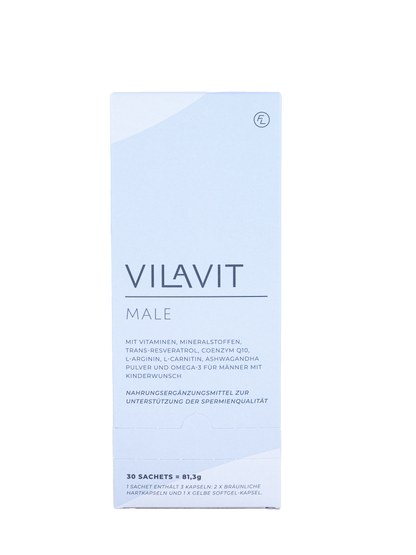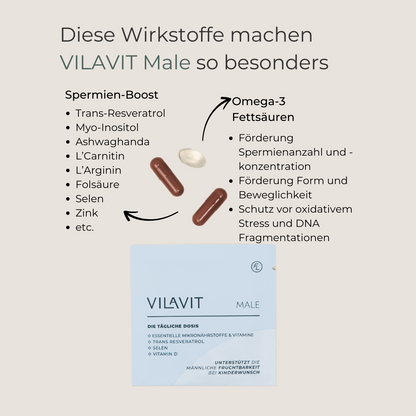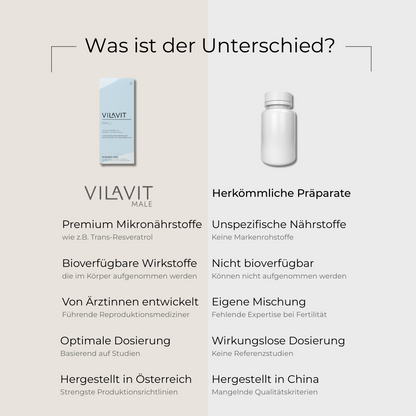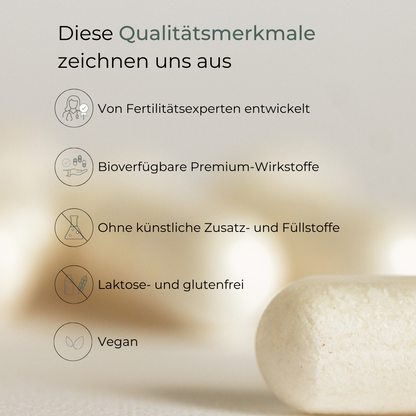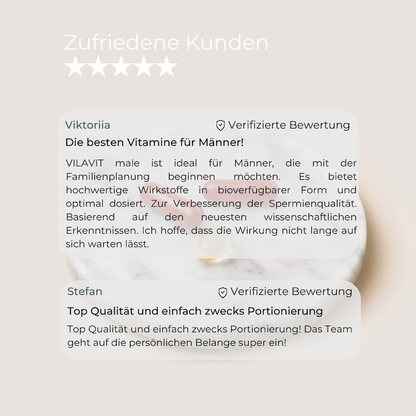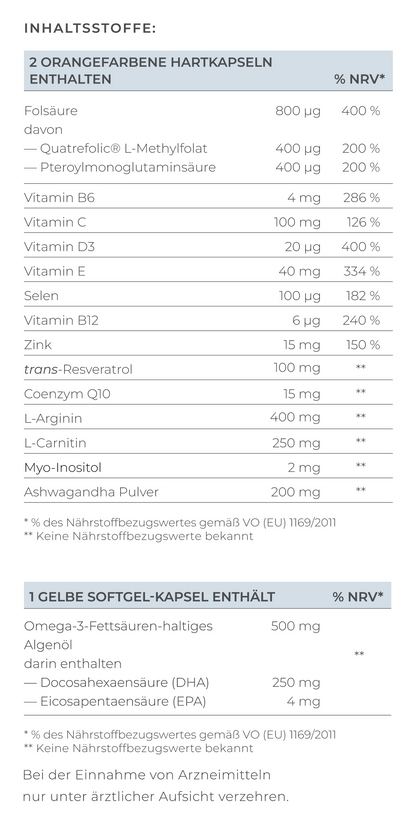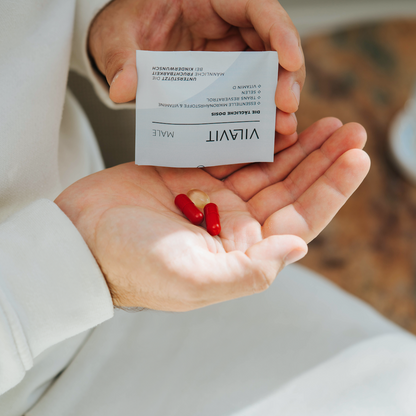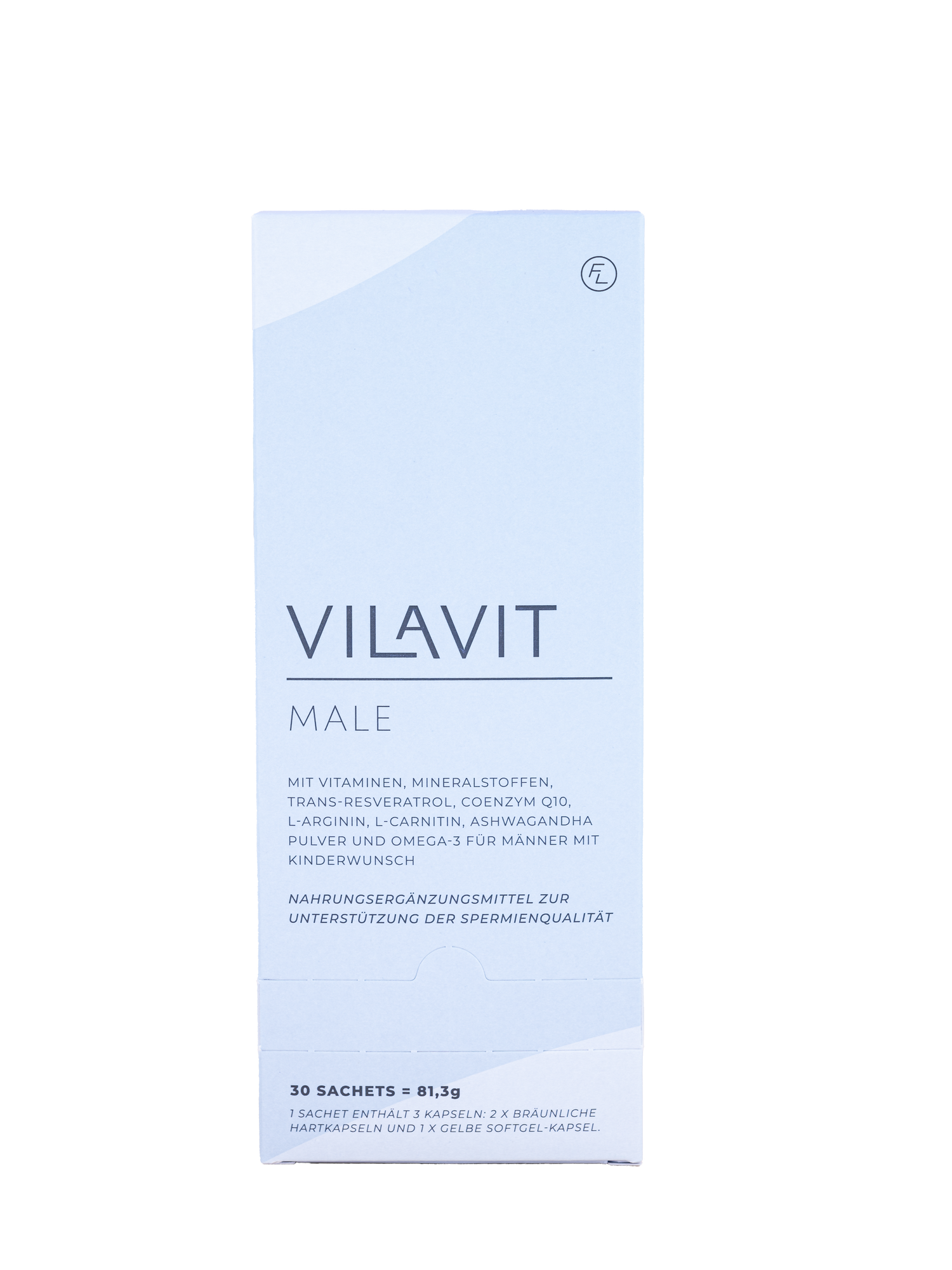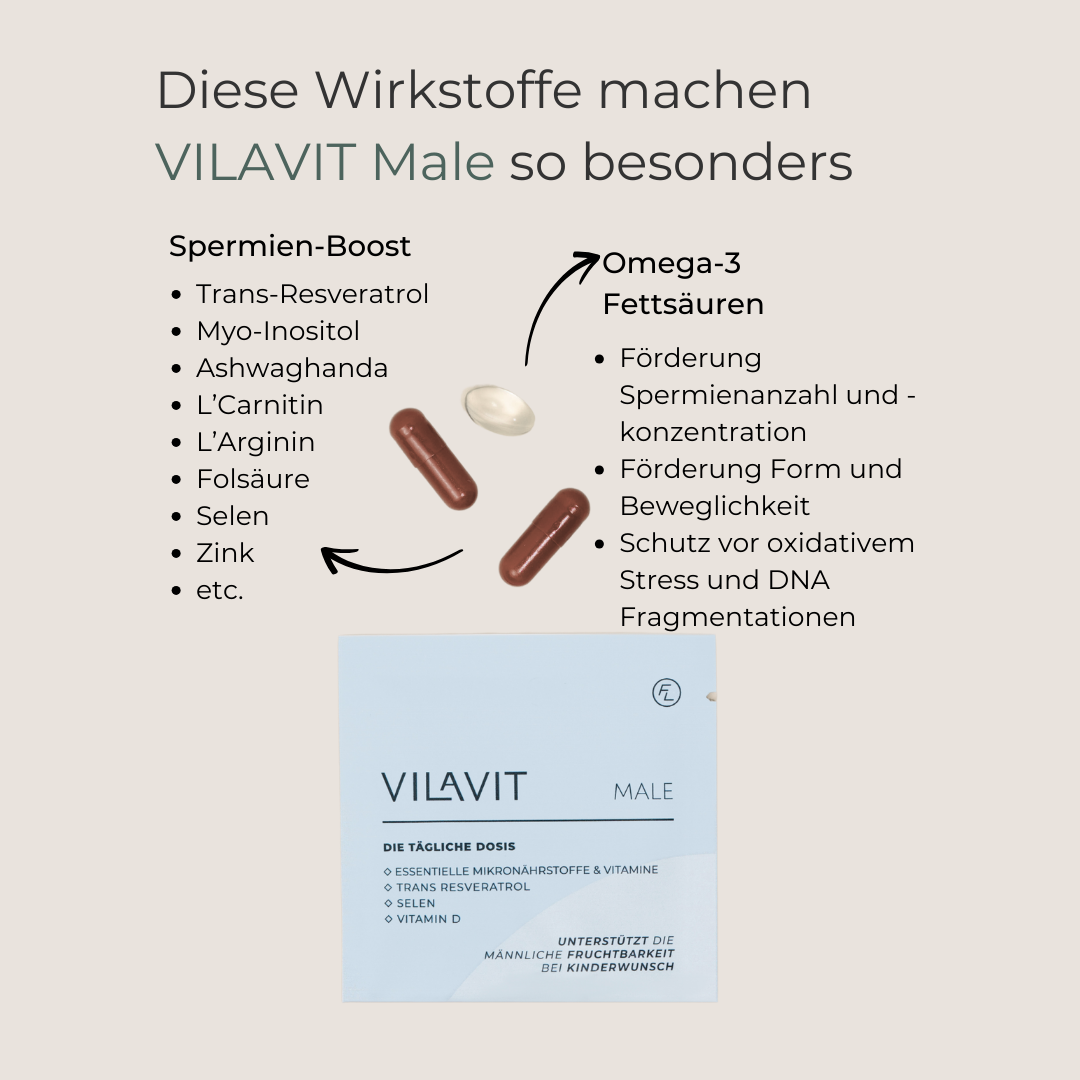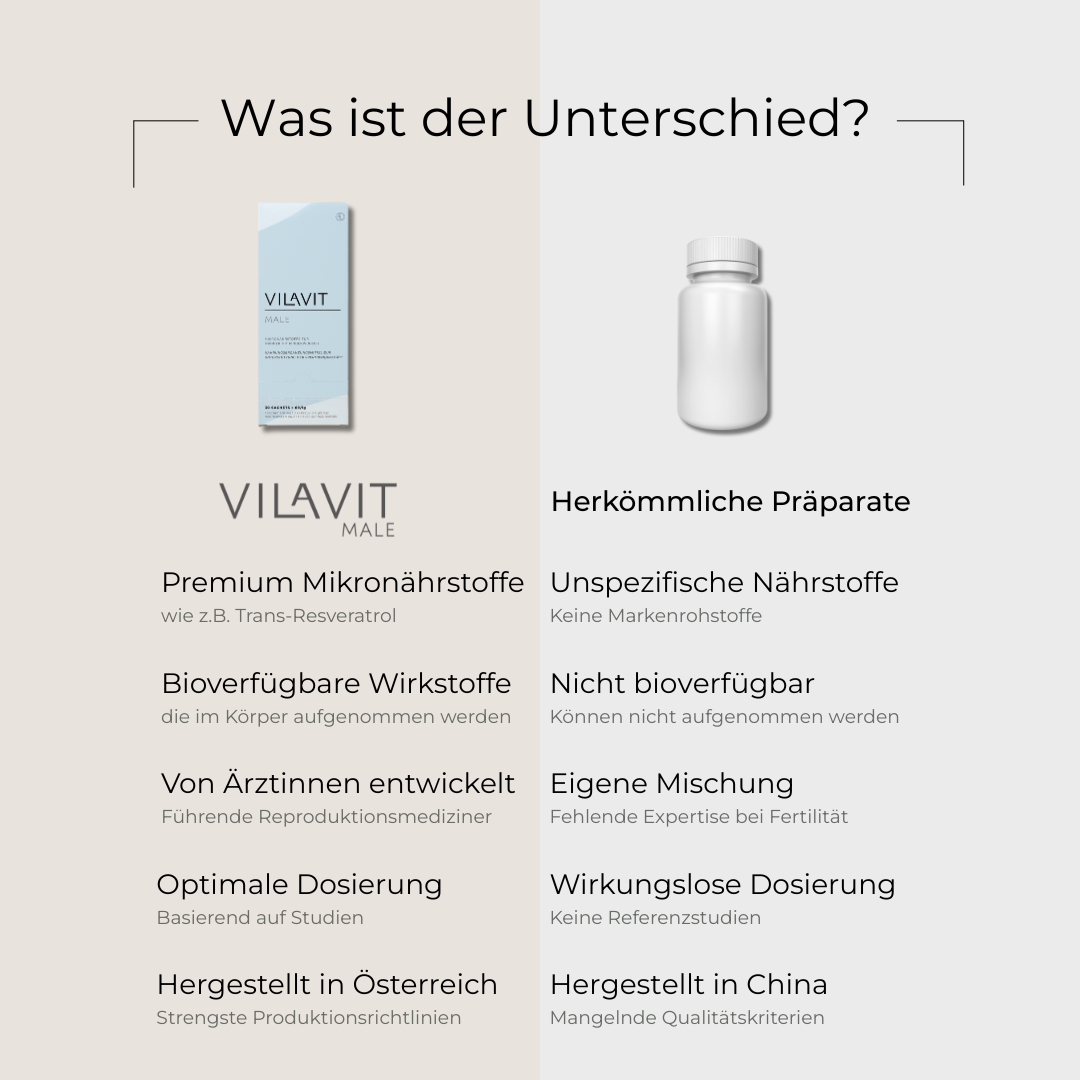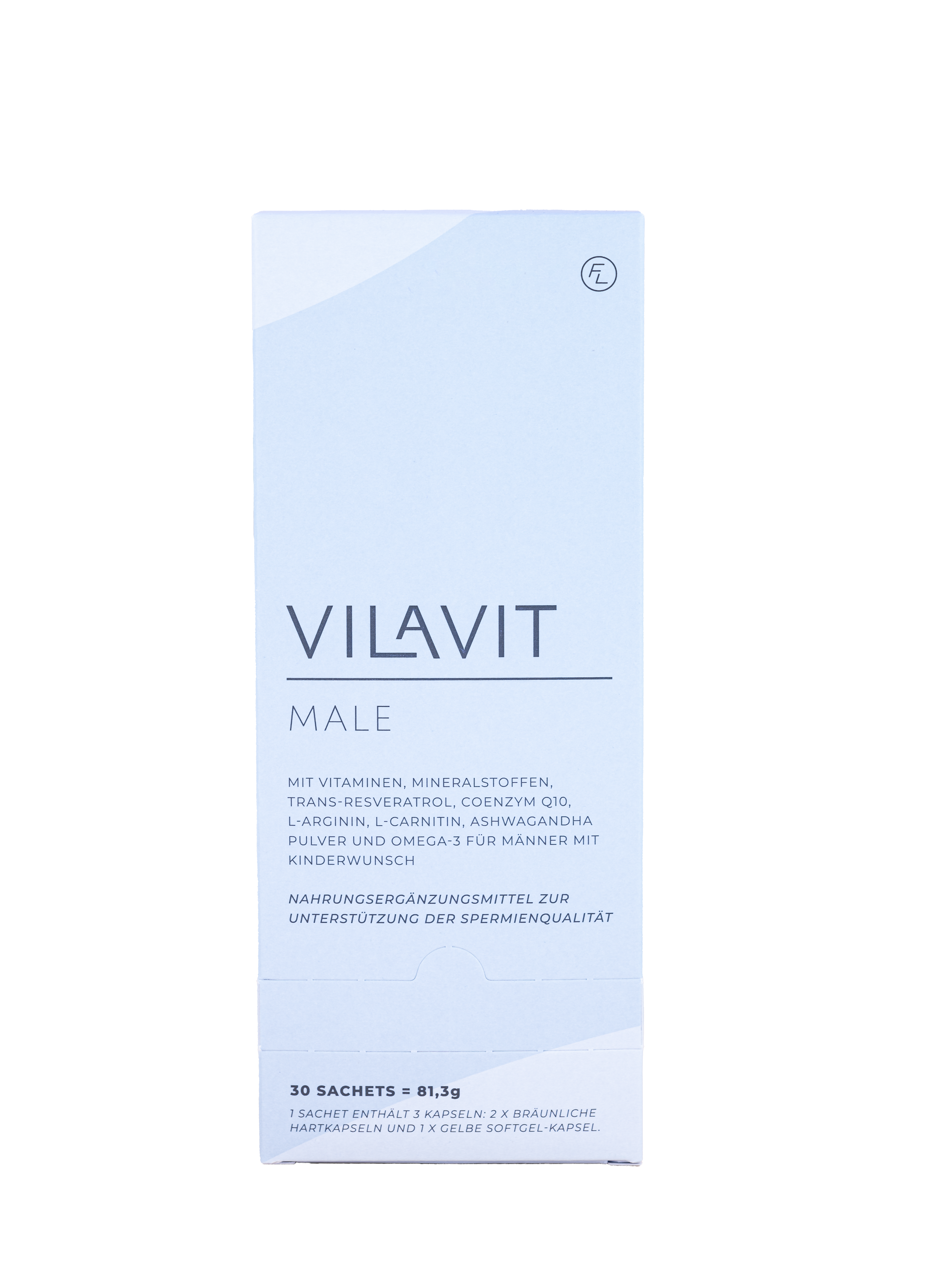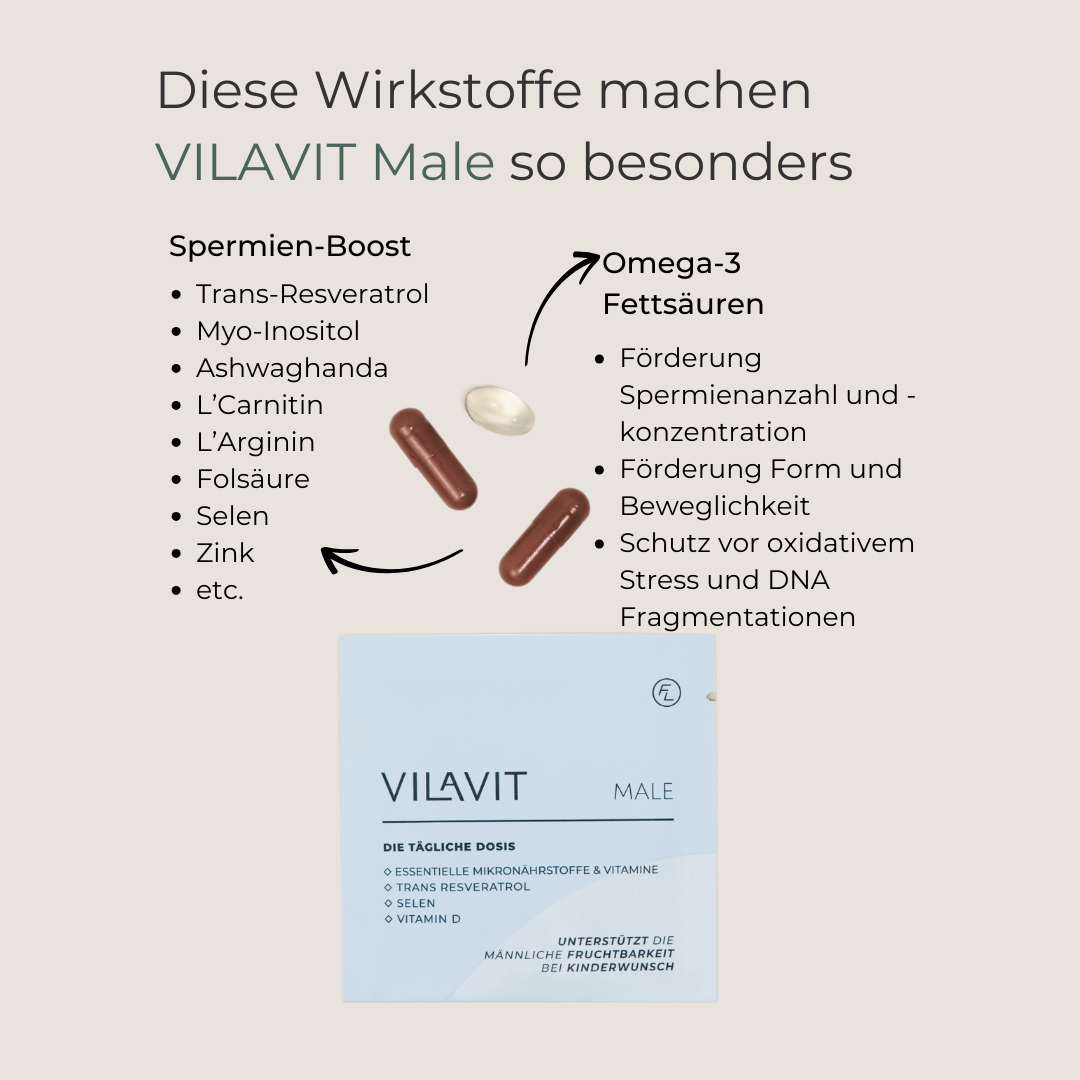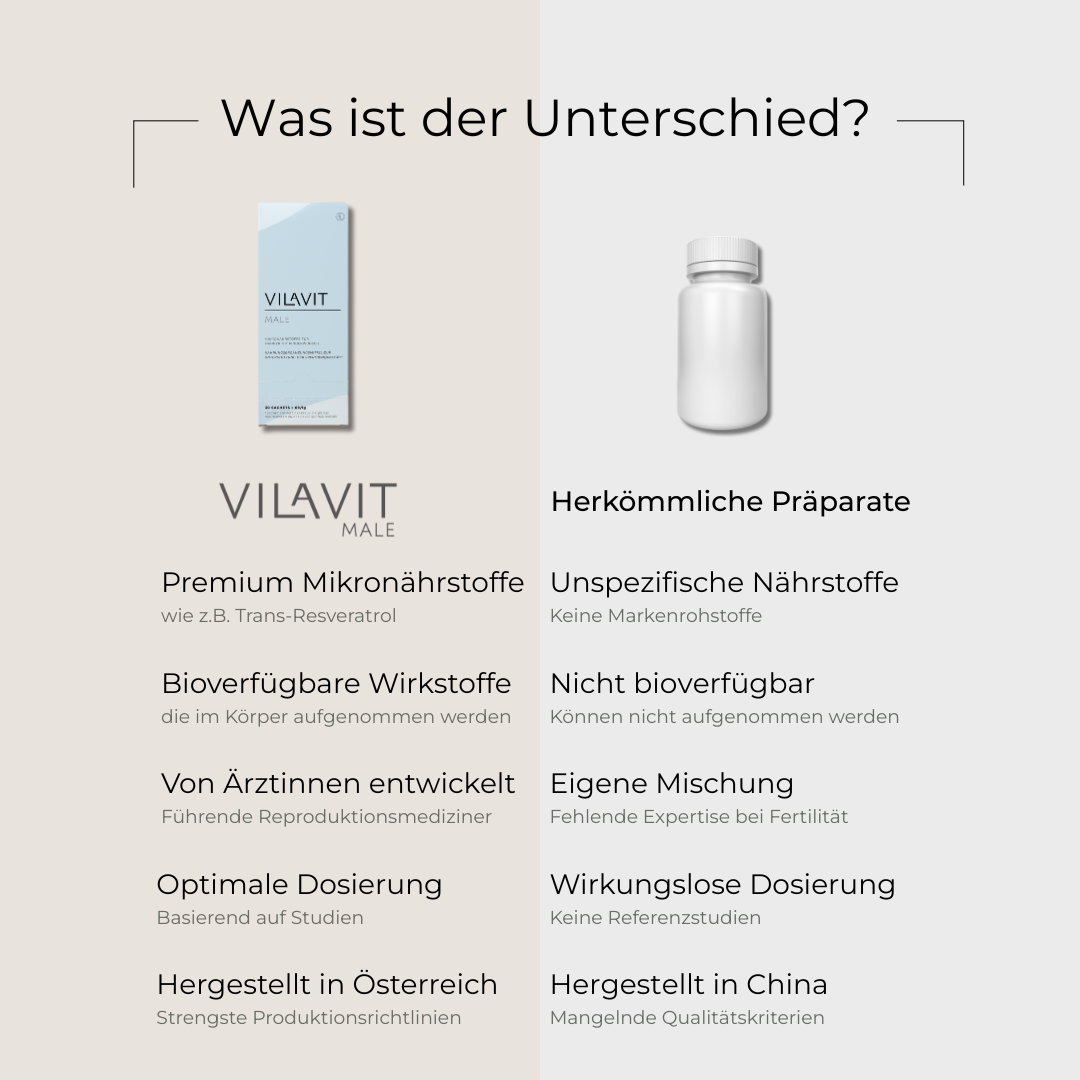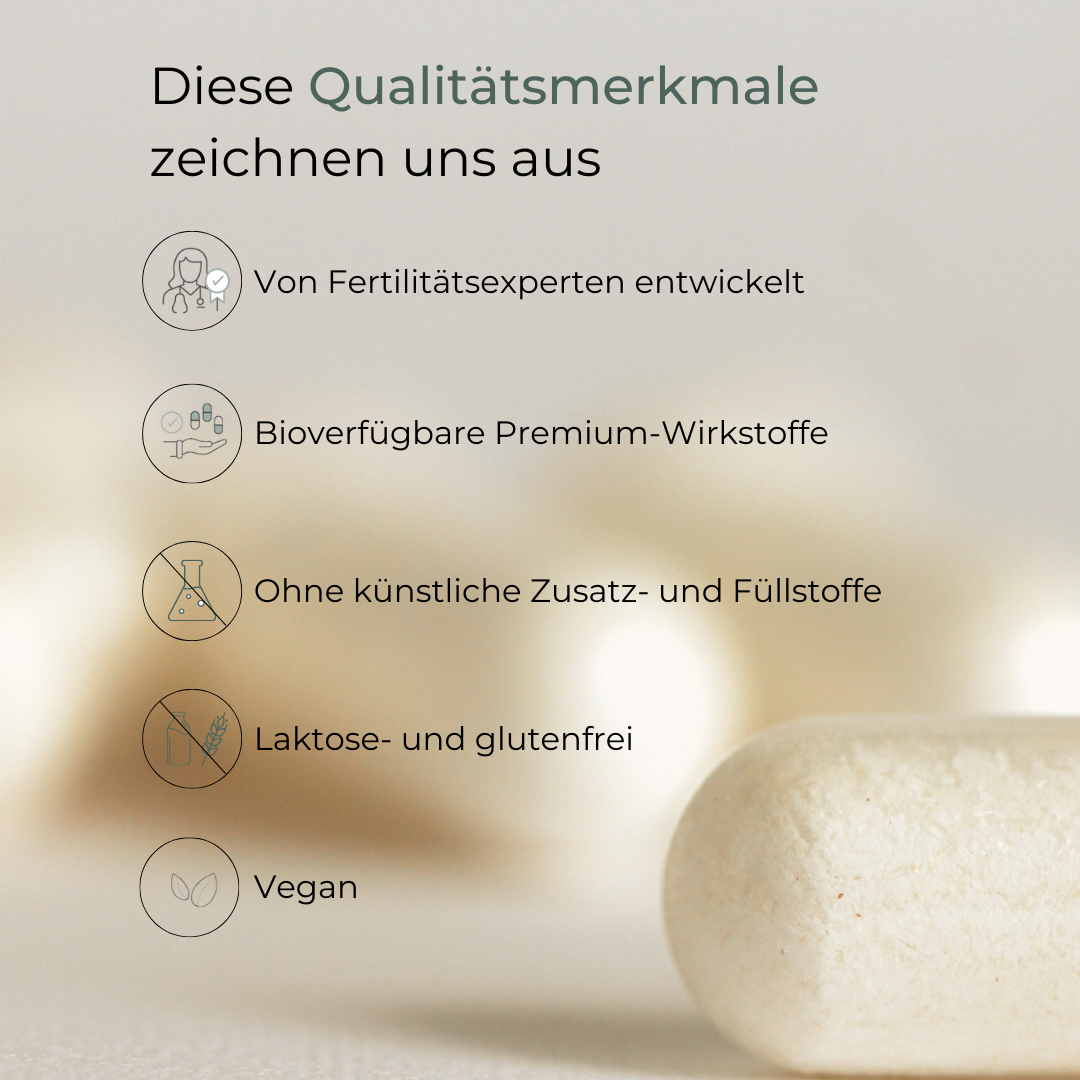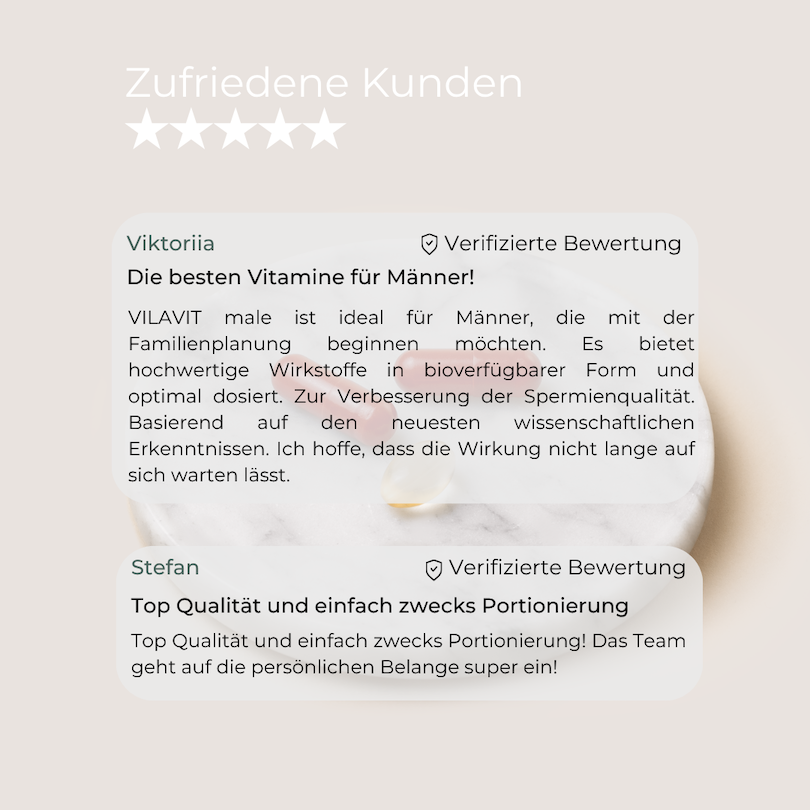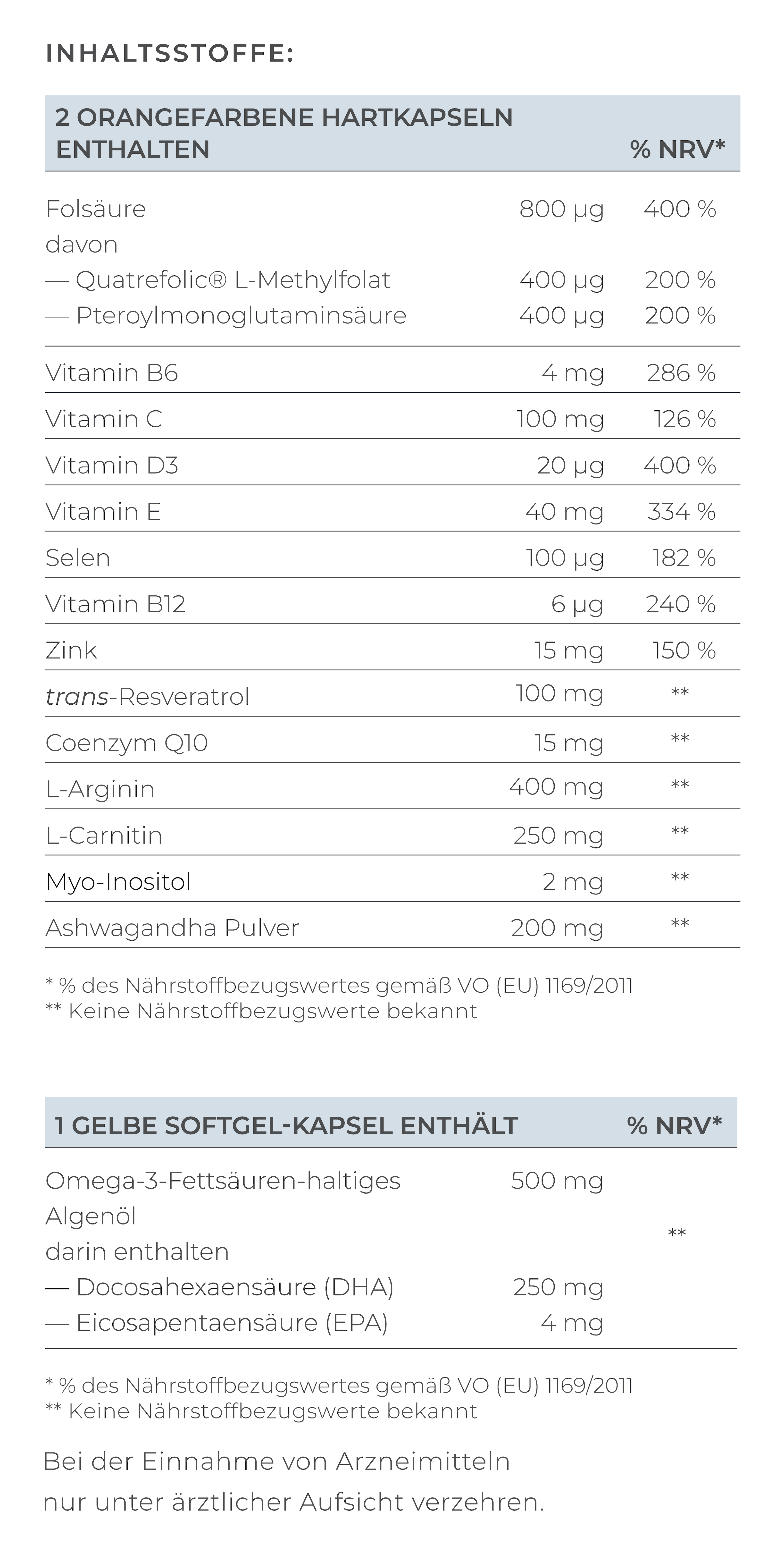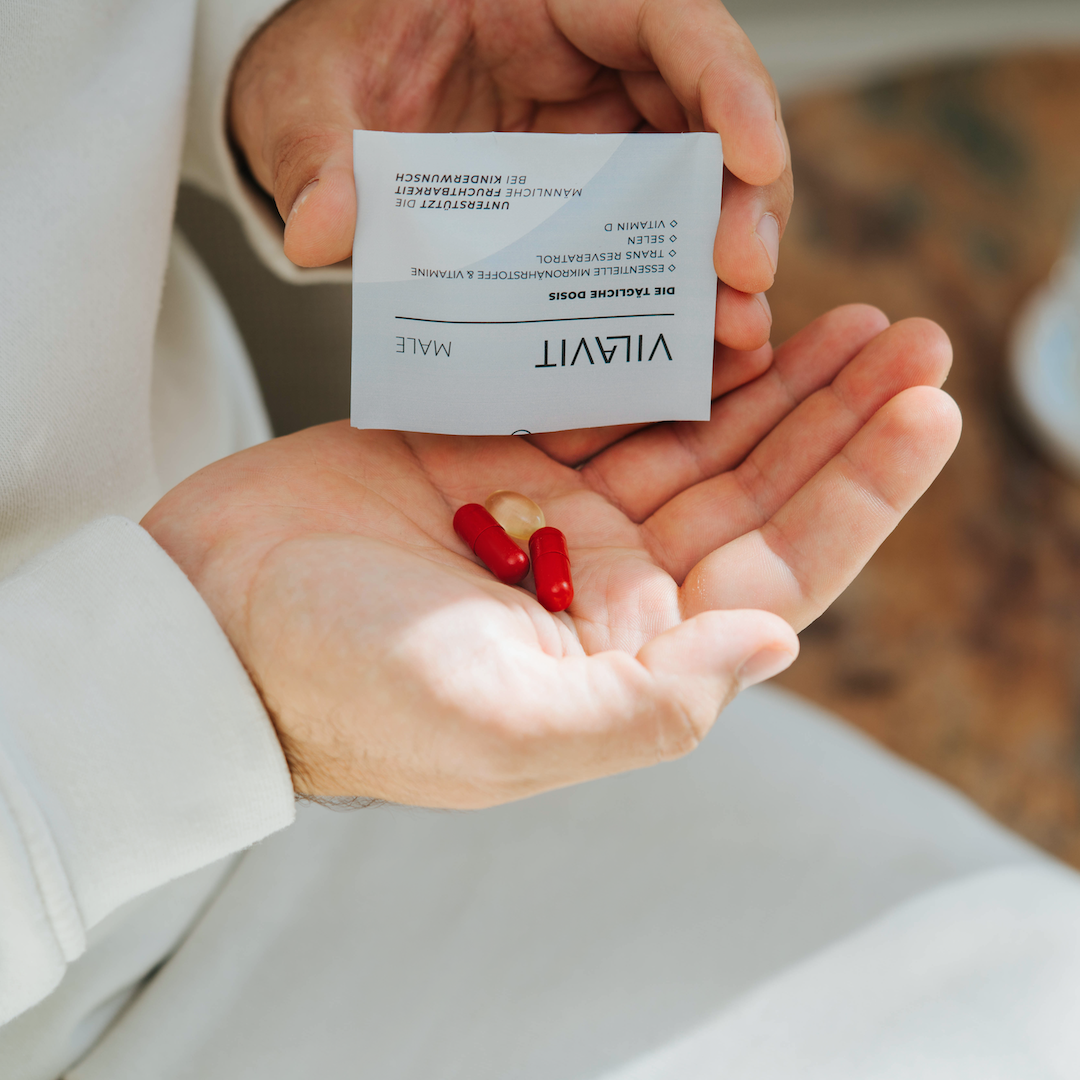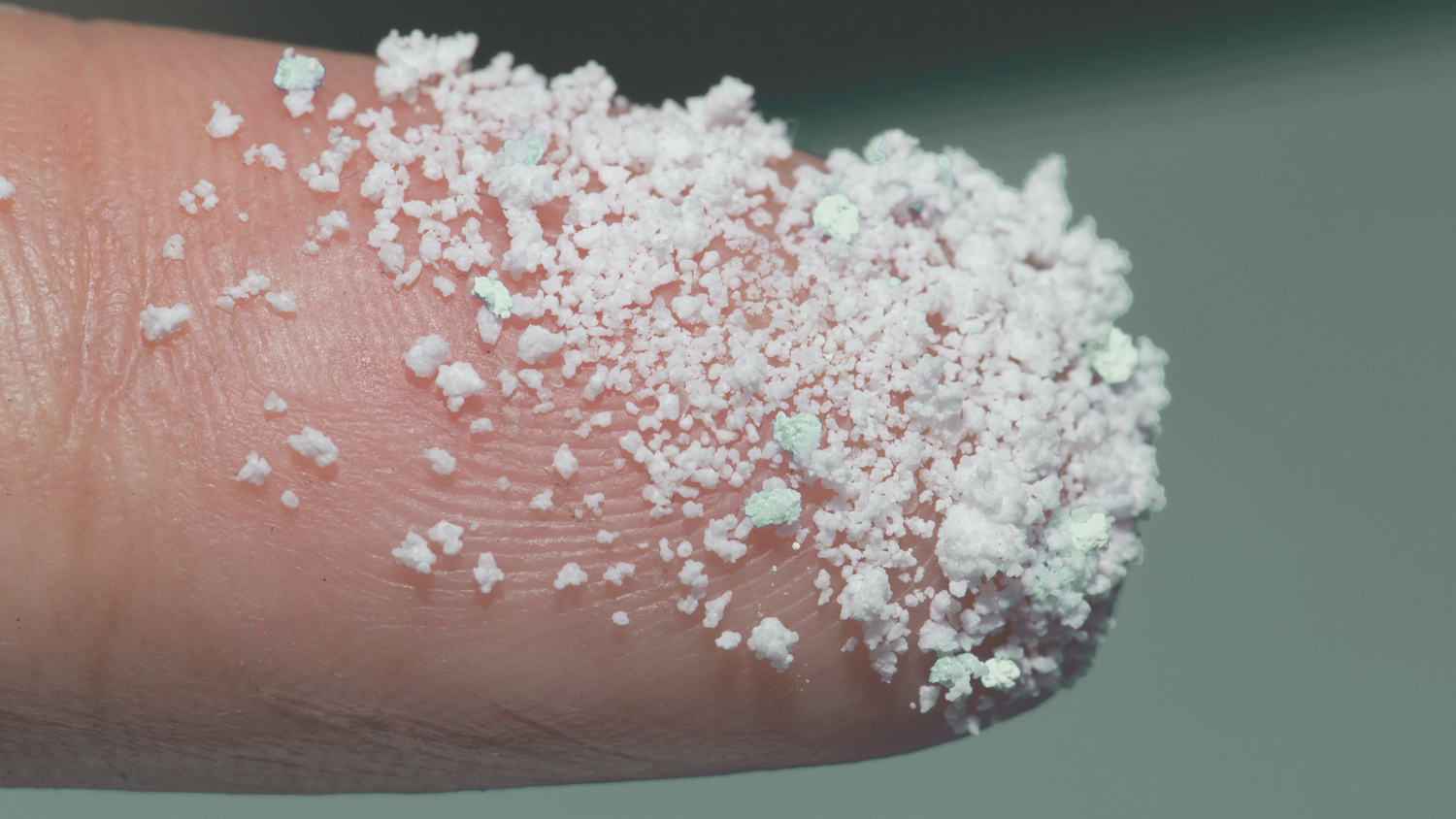Key Points About Energy Drinks and Fertility
-
Energy drinks can negatively impact fertility in both men and women.
-
The evidence is clearer for men, but studies increasingly show effects on women as well.
-
Individual ingredients in energy drinks, such as sugar and caffeine, have been proven to reduce fertility.
-
During family planning, it is strongly recommended to reduce the consumption of energy drinks.
-
For women, this advice also applies during pregnancy itself.
Energy drink consumption is widespread in many Western countries, especially among young adults. Although they may temporarily enhance performance, increasing evidence suggests that regular consumption can negatively affect fertility in both genders.
Effects on Male Fertility
Energy drinks can negatively impact male fertility (Wesselink, A.K., 2016), so men should avoid them during family planning.
One study found that the consumption of sugar-sweetened beverages in young men reduced sperm concentration and total sperm count (Nassan, F.L. et al., 2021). Both parameters are crucial for increasing the chances of successful fertilization. Other research shows that sugar-sweetened drinks reduce sperm motility (movement ability) in healthy young men (Chiu, Y.H., et al., 2014).
Another reason to avoid energy drinks: caffeine consumption also negatively affects male fertility (Pecora G., et al., 2023). Therefore, it is advisable to eliminate these beverages—at least during family planning.
Effects on Female Fertility
Animal studies have shown that energy drinks can reduce ovarian reserve and lower Anti-Müllerian Hormone (AMH) levels. AMH is a marker for the number of eggs in the ovaries and an indicator of fertility. These findings suggest that energy drinks may negatively impact female fertility (Elçi, E., et al., 2021). AMH levels should also exceed a certain threshold for artificial reproduction methods such as IVF—so caution is advised.
Sugar-sweetened beverages can interfere with women's hormonal systems in various ways. Regarding pregnancy and fertility, lower consumption of sugary drinks has been linked to higher live birth rates and clinical pregnancy rates (Alesi, S., et al., 2023).
High caffeine consumption can increase the time it takes to conceive and raise the risk of miscarriage (Skoracka, K., et al., 2021). Although the data on women is still less extensive than for men, it is still recommended to avoid energy drinks during family planning—following the principle of “better safe than sorry.”
Healthier Alternatives to Energy Drinks
Ideally, a personal alternative to energy drinks should contain neither added sugar nor caffeine. However, since this transition can be challenging for some, it may help to switch to other caffeine or sugar sources first and consume them in moderation before eliminating them altogether.
For example, coffee or green and black tea generally contain less caffeine and sugar than energy drinks, making them potential alternatives. However, it is essential to check the ingredients of any consumed products, as blanket statements are difficult.
When ready to take another step toward improved fertility, diluted fruit juices, soda with lemon, or flavored water can be alternatives. However, caution is advised, and marketing claims should never be blindly trusted.
Some people find chewing gum, fruit, or nuts to be helpful alternatives. Try out what works best for you (and perhaps your partner).
However, you should avoid alternative stimulants such as taurine or guarana, as their effects on fertility have not been thoroughly researched and pose significant risks.
Conclusion
Although research has not yet fully explained all mechanisms, current studies suggest that regular consumption of energy drinks can negatively affect male and female fertility. A balanced diet, regular exercise, and sufficient sleep are proven methods to support fertility.
FAQ
Can energy drinks affect fertility?
Yes, there is evidence that regular consumption of energy drinks can impair fertility in both genders. Energy drinks contain high amounts of caffeine, sugar, and other stimulants such as taurine and guarana, which may negatively affect sperm quality in men and hormone balance in women when consumed in large quantities.
How does caffeine from energy drinks impact fertility?
Caffeine can disrupt hormonal balance and trigger oxidative stress reactions in the body, reducing sperm quality in men and causing hormonal imbalances in women. Excessive caffeine intake may also decrease conception rates. Studies indicate that men who frequently consume caffeinated beverages have a lower chance of conceiving within a year.
Can energy drinks be problematic when trying to conceive?
Yes, especially with regular consumption. Anyone actively trying to conceive should reduce or completely avoid energy drink consumption.
Are there healthy alternatives to energy drinks?
Yes, natural energy sources such as fruits, water with lemon, nuts, juices, and balanced meals provide sustainable energy without the negative effects of energy drinks.
How do energy drinks affect metabolism?
The high sugar content can lead to insulin resistance, which can, in turn, impact fertility. Additionally, artificial ingredients can negatively affect metabolic processes.
How long before pregnancy should one stop consuming energy drinks?
Ideally, consumption should be reduced or eliminated several months before conception to prepare the body optimally for pregnancy.
Can energy drinks increase the risk of miscarriage?
High caffeine consumption has been linked to an increased risk of miscarriage. Therefore, it is advisable to significantly limit or completely avoid consumption during pregnancy.
Do energy drinks affect libido?
Yes, hormonal fluctuations and metabolic changes due to excessive consumption can negatively impact libido and overall well-being.
Is taurine harmful to fertility?
The effects of taurine on fertility are not yet fully researched, but some evidence suggests it may influence hormone balance.
References
- Nassan, F. L., Priskorn, L., Salas-Huetos, A., Halldorsson, T. I., Jensen, T. K., Jørgensen, N., & Chavarro, J. E. (2021). Association between intake of soft drinks and testicular function in young men. Human reproduction (Oxford, England), 36(12), 3036–3048. https://doi.org/10.1093/humrep/deab179
- Wesselink, A. K., Wise, L. A., Rothman, K. J., Hahn, K. A., Mikkelsen, E. M., Mahalingaiah, S., & Hatch, E. E. (2016). Caffeine and caffeinated beverage consumption and fecundability in a preconception cohort. Reproductive toxicology (Elmsford, N.Y.), 62, 39–45. https://doi.org/10.1016/j.reprotox.2016.04.022
- Chiu, Y. H., Afeiche, M. C., Gaskins, A. J., Williams, P. L., Mendiola, J., Jørgensen, N., Swan, S. H., & Chavarro, J. E. (2014). Sugar-sweetened beverage intake in relation to semen quality and reproductive hormone levels in young men. Human reproduction (Oxford, England), 29(7), 1575–1584. https://doi.org/10.1093/humrep/deu102
- Pecora, G., Sciarra, F., Gangitano, E., & Venneri, M. A. (2023). How Food Choices Impact on Male Fertility. Current nutrition reports, 12(4), 864–876. https://doi.org/10.1007/s13668-023-00503-x
- Elçi, E., Güneş Elçi, G., Çim, N., Aras, İ., Sayan, S., & Yıldızhan, R. (2021). Energy drinks may affect the ovarian reserve and serum anti-mullerian hormone levels in a rat model. Turkish journal of obstetrics and gynecology, 18(1), 23–29. https://doi.org/10.4274/tjod.galenos.2020.07347
- Alesi, S., Habibi, N., Silva, T. R., Cheung, N., Torkel, S., Tay, C. T., Quinteros, A., Winter, H., Teede, H., Mousa, A., Grieger, J. A., & Moran, L. J. (2023). Assessing the influence of preconception diet on female fertility: a systematic scoping review of observational studies. Human reproduction update, 29(6), 811–828. https://doi.org/10.1093/humupd/dmad018
- Ding, M., Markon, A. O., Jones-Dominic, O. E., Purdue-Smithe, A. C., Rich-Edwards, J. W., Wolpert, B. J., & Chavarro, J. E. (2023). Intake of Energy Drinks Before and During Pregnancy and Adverse Pregnancy Outcomes. JAMA network open, 6(11), e2344023. https://doi.org/10.1001/jamanetworkopen.2023.44023




